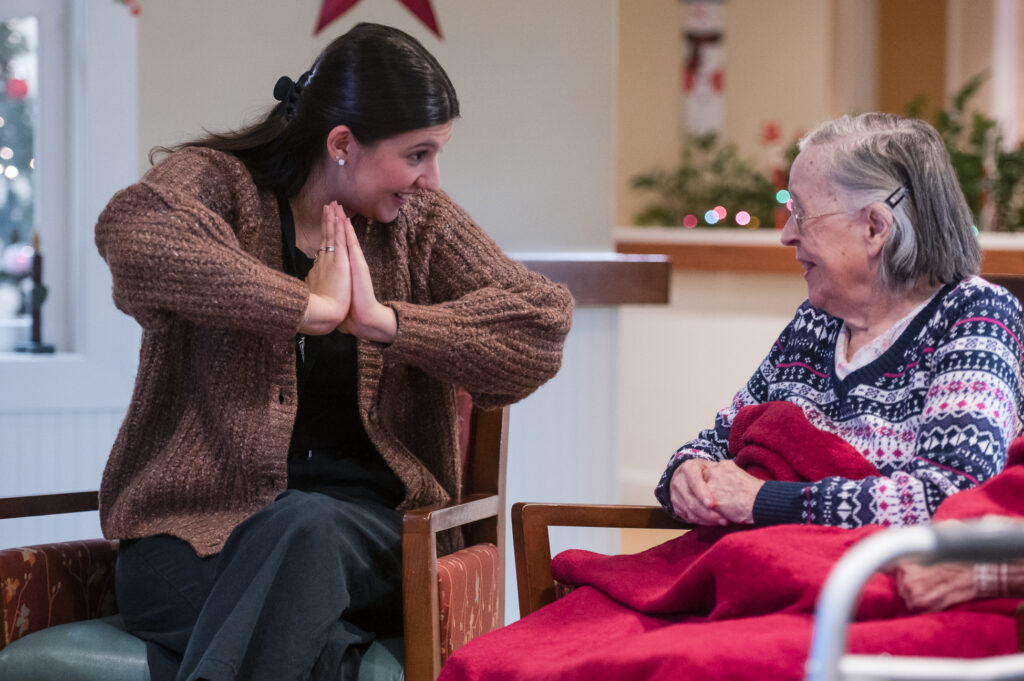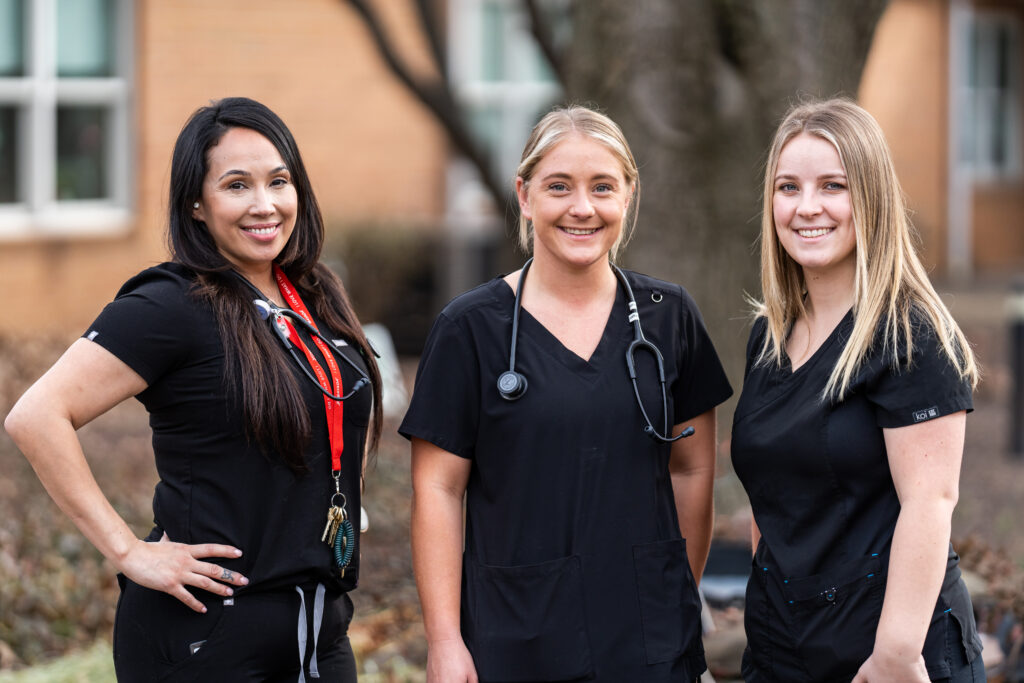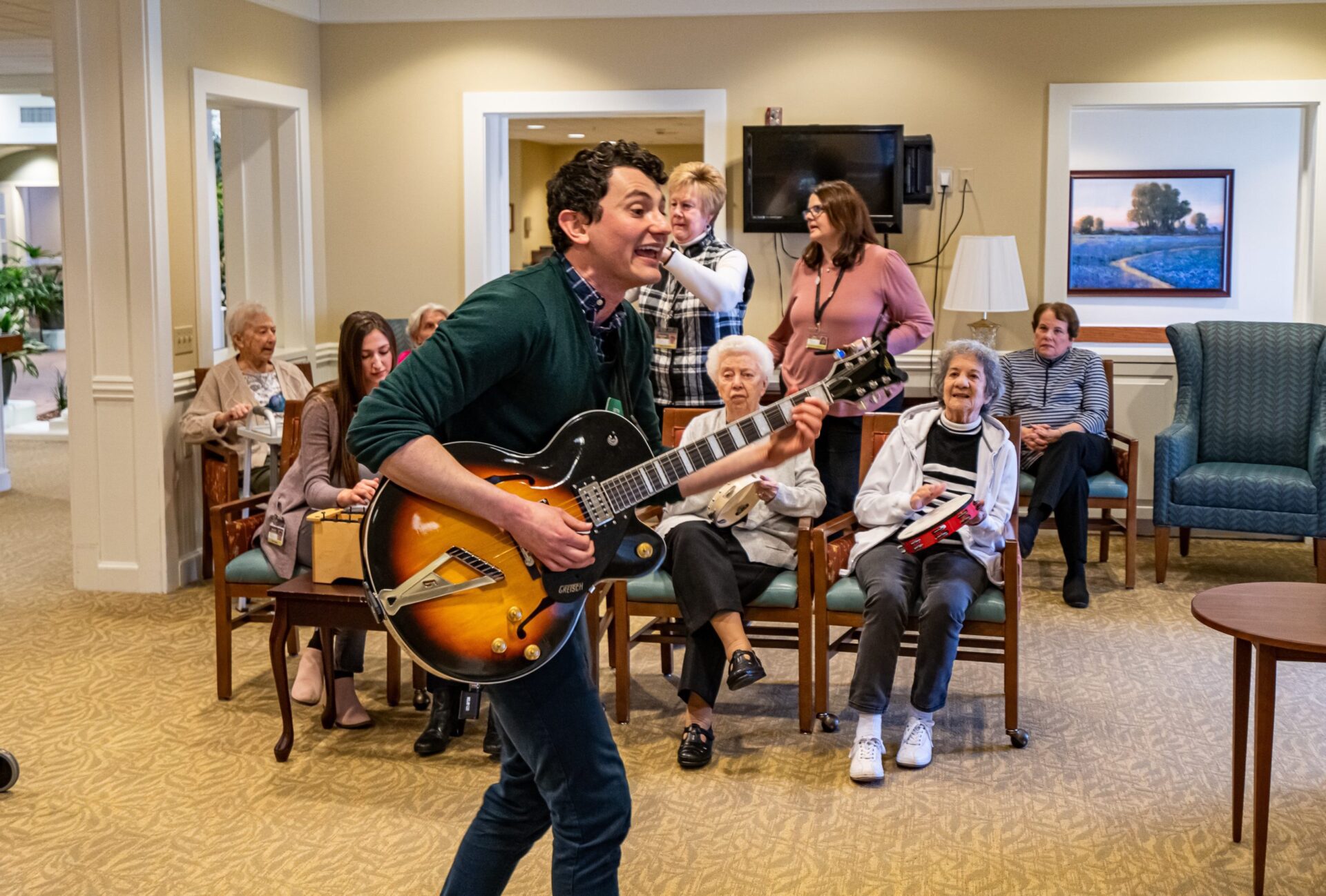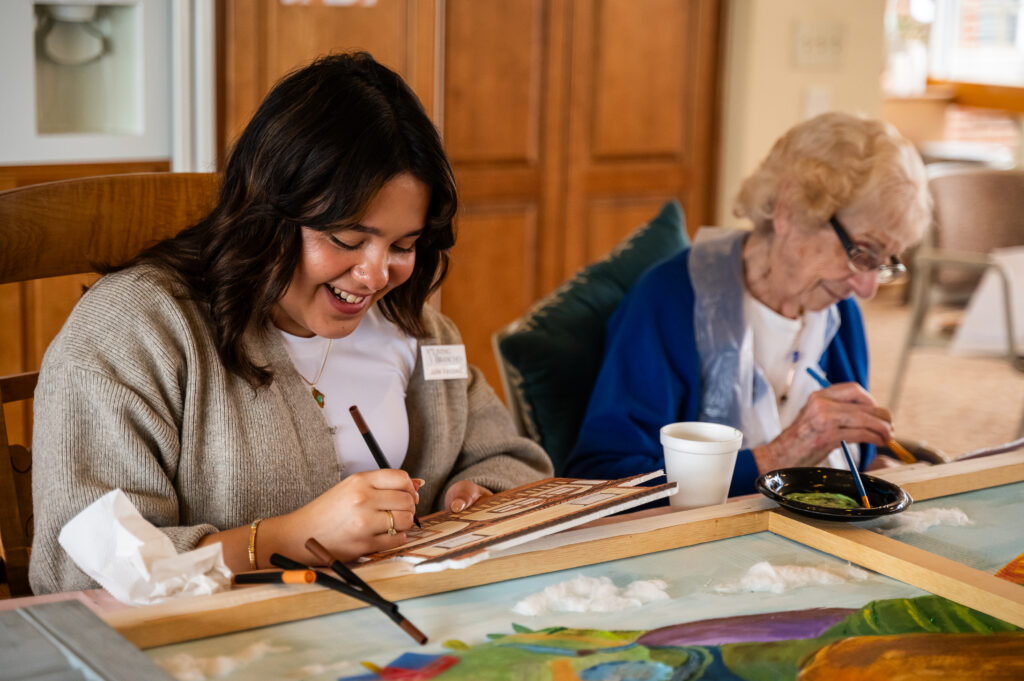At Living Branches, we see and care for the whole person. Mental, emotional, and spiritual health is just as important as physical health. That’s why you’ll get to know a variety of care providers – we’re here to help you live well.
Residents in Living Branches communities work with a range of team members. Some provide health care and help with activities of daily living. Others lend their expertise on fitness, diet, spiritual practice, and other important aspects of life.





